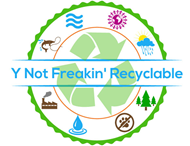[ad_1]
This issue of the EUTR News provides an update on the operation of the EU’s law to address illegal logging, the EU Timber Regulation (EUTR), from March 2019 to March 2020. As with all of our previous editions, this issue will include information on what both the European Commission and EU Member States are doing to ensure the proper application of the EUTR, and provide updates on similar legislation internationally.
Editorial from ClientEarth on the 7th anniversary of the EUTR
Although the EU Timber Regulation (EUTR) entered into force in 2010, March 2020 marks the 7th anniversary of when the EUTR became fully applicable in all EU Member States.
While a number of implementation gaps remain after 10 years of the Regulation being in force, many Member States have developed systems of checks and are applying sanctions more consistently. It is noteworthy that the past year has seen many results of checks performed previously in 2018. Indeed, 2018 had been what could be called a ‘peak year’ when it comes to the number of checks performed both on domestic and importing operators by Competent Authorities since applicability of the EUTR. 2019 saw some of the resulting enforcement action from these checks, as well as more than 171 substantiated concerns received by Competent Authorities in the first half of the year. Remaining challenges include the need for increased controls on domestic timber operators, budget and capacity allocation within Competent Authorities, as well as tackling shifts in the import routes of illegally sourced timber.
In its 2019 Communication on Stepping up EU Action to Protect and Restore the World’s Forests, the Commission acknowledged that “the EU’s objective to reduce gross tropical deforestation by 50% by 2020 is unlikely to be met…”. Thus, ClientEarth welcomes the initiatives undertaken by the Commission in early 2020 which include the publication of both the Commission’s Roadmap for the Fitness Check on the EUTR and FLEGT Regulation, as well as the Commission’s Inception Impact Assessment on deforestation. These initiatives pave the way for a detailed examination of the existing regulatory framework in the EU and present opportunities to reinforce that framework with new, robust regulatory and non-regulatory measures.
In February 2020, the Commission also provided another signal of its intention to improve the enforcement of the EUTR by launching infringement proceedings against Romania on the grounds of failure to properly implement the EUTR by allowing illegally harvested wood to enter the EU market.
For more details on this past year’s activities, we encourage you to have a look below at the anniversary edition of ClientEarth’s EUTR Newsletter which summarises the main developments from March 2019 to March 2020.
1. European Commission support to implementation and enforcement of the EUTR
This past year, the European Commission continued to hold regular FLEGT/EUTR Expert Group meetings, they sent a letter of formal notice to Romanian authorities, published an intended Fitness Check for both EUTR and FLEGT Regulation and a Communication on The European Green Deal. They also published a guidance document on ‘conflict timber’.
European Commission FLEGT/EUTR Expert Group meetings
The FLEGT/EUTR Expert Group held its 27th meeting on 19 February 2020. The agenda of the meeting included, amongst others, discussions on the launched Fitness Check to both EUTR and FLEGT Regulations, an update on the Life Project on EUTR implementation, as well as the adoption of the guidance document on due diligence. Minutes should be available soon.
The European Commission also published the minutes of the 26th meeting, which took place on 12 December 2019. The meeting included discussions on both the Green Deal and the EU Forest Conference (4-5 February 2020), as well as the outcome of the informal EUTR Enforcement Group meeting, and an update on VPA negotiations.
European Commission sends letter of formal notice to Romania for misapplication of the EUTR
On 12 February 2020, the European Commission issued a letter of formal notice to Romania to urge the Member State to properly implement the EUTR. Romania was given one month to take the necessary measures to address the shortcomings the Commission identified. Should it fail to do so, the Commission may decide to issue a reasoned opinion to the Competent Authority in Romania.
This follows an earlier complaint filed by a coalition of three environmental NGOs (EuroNatur, Agent Green and ClientEarth) to the European Commission against authorities in Romania. The organisations claimed that Romania’s state forestry management, Romsilva, conducted logging operations within Natura 2000 protected sites without assessing their impact on these areas.
Commission publishes its intended Fitness Check for both EUTR and FLEGT Regulation
On 31 January 2020, the European Commission published the Roadmap to its intended Fitness Check of both the EUTR and FLEGT Regulation. It was possible for stakeholders to provide feedback on the Roadmap on the Commission’s website until 28 February. The Commission will then consider these contributions while producing its Fitness Check. A public consultation on both regulations is expected in the first half of2020.
European Commission’s latest overview of Competent Authority checks
In January 2020, the European Commission published the latest briefing note for Competent Authorities implementing the EUTR (covering September-November 2019) produced by UNEP-WCMC. Previous editions can be found here.
European Commission’s overview of EUTR compliance checks
In January 2020, the European Commission released its latest report providing an overview of the EUTR compliance checks performed, and penalties imposed by EU Member States’ and EEA Competent Authorities over the period from January to June 2019.
The European Commission’s Green Deal
The Commission’s Communication on The European Green Deal and its Roadmap, published on 11 December 2019, includes elements on both tropical and European forests. It pushes for a new EU Forest Strategy covering the whole forest cycle and promoting the many services that forests provide. Building on the Communication on Stepping up EU Action to Protect and Restore the World’s Forests, the Commission will take measures, both regulatory and otherwise, to promote imported products and value chains that do not involve deforestation and forest degradation.
European Commission FLEGT Regulation report for 2017
In June 2019, the European Commission published the Annual Synthesis Report on the implementation of the FLEGT licensing scheme for 2017. During that year, 28,826 licenses were received by Member States, of which over 98% (over 658 million kg of timber and timber products) were validated. The report underlines remaining challenges, and notes that is still necessary to ensure consistent reporting of data on FLEGT licences and customs declarations. The European Commission also identified a problem of restricted access of Member States to data on SILK, the Indonesian Timber Legality Information System.
European Commission guidance document on ‘conflict timber’
In May 2019, the European Commission published a guidance document for the EUTR on ‘Consideration of prevalence of armed conflict and sanctions in due diligence systems’. The document defines notions of ‘prevalence of armed conflict’ and ‘sanctions’ and specifies factors that should be taken into consideration in risk assessment procedures.
2. Member State enforcement of the EUTR
The past year has seen action from different Competent Authorities to continue their efforts to enforce the EUTR. In The Netherlands, a court ruled importers of Myanmar teak must be able to trace legality from stump to shipping, France issued a fine for breach of the EUTR while in the UK, a furniture company pleads guilty to criminal offences under the EUTR. Access to the German market was denied for teak from Myanmar, and in Belgium, authorities blocked a shipment of tropical timber from Gabon after a warning from Greenpeace, and fined an operator named in a Global Witness report.
Dutch court rules importers of Myanmar teak must be able to trace legality from stump to shipping
In February 2020, the Dutch Administrative Court ruled that importers of teak from Myanmar must be able to trace the legality of the source of timber. This ruling upheld a finding by the Dutch Food and Consumer Product Safety Authority (Nederlandse Voedsel- en Warenautoriteit) that teak from Myanmar traded for yacht construction was not compliant with local and Dutch legislations.
UK government issues brief on timber imports post Brexit
In January 2020, the UK updated its guidance on timber trading to include the status of imports and exports as of 1 January 2021. From 1 January 2021, operators and importers will need to follow different processes for trading timber and timber products currently covered by EU law. The guidance stresses that the UK will have its own law for trading timber, and that these laws will have the same requirements as existing EU rules.
France issued a fine for breach of the EUTR
According to Le Commerce du Bois, France issued an administrative fine of €5,000 in December 2019 to the company ‘Carbon Market’ for breaching the EUTR. On 24th June 2019, a French administrative authority issued a formal notice against Carbon Market, giving them one month to set up a due diligence system for their imports that included an analysis of the risk and the mitigation measures taken by the company. In its administrative order, the French authority highlighted the major non-conformity with the EUTR including the lack of rigorous risk assessment regarding Carbon Market’s imports and the lack of risk mitigation processes, even though the company imports from high-risk profile countries (Bolivia, Brazil, Peru, Cameroon, Gabon and Congo). Back in September 2019, it appears Carbon Market had informed the French Competent Authority (CA) that it had a contract for an upcoming audit of all of its suppliers. However, the French CA decided that while this contract might secure future imports, it was not enough to show that due diligence had been undertaken for past imports. Global Witness’ report ‘Buyers Beware’, published in March 2019, names Carbon Market, although it is not clear if there is a link between this report and the fine issued by the French Authorities.
UK furniture company pleads guilty to criminal offences under the EUTR as European enforcement scales up
According to Forest Trends, two criminal offenses were upheld under the EUTR in September 2019 at Birmingham magistrates court against Heartlands Furniture (Wholesale) Ltd. its director pled guilty on both offences. The offences reflected issues with the company in ensuring traceability in its supply chain and failure to exercise due diligence on two specific products. On 4 December 2019, Heartlands Furniture was sentenced and issued with two fines of £4,000 and ordered to pay full costs of £5,177.86 and a victim surcharge of £170.00 for the two offences. Heartlands Furniture had to pay a total of £13,347.86 by 18 January 2020.
Access to German market denied for teak from Myanmar
In August 2019, teak imported by a German operator from Myanmar via Singapore was denied access to the EU market. The German authorities took two shipments of teak from Myanmar into custody after an onsite inspection. As the operator was unable to show that the risk was negligible, the timber was returned to Myanmar.
Belgian authorities blocked shipment of tropical timber from Gabon after warning from Greenpeace
In July 2019, Greenpeace alerted Belgian Authorities to a shipment of timber arriving in the Port of Antwerp that may have been produced by a Chinese company implicated in illegal exploitation of the Gabonese rainforest. Custom officers reacted quickly and blocked the placement of the tropical timber on the EU market. The Belgian Competent Authority also initiated proceedings in order to check whether the Belgian company that received the shipment acted in compliance with the EUTR.
EUTR inspection of Holzindustrie Schweighofer in Romania
In April 2019, Holzindustrie Schweighofer, one of the biggest timber processing companies in Europe, stated that it passed its compliance checks under the EUTR, performed by the Romanian Competent Authority in Sebes sawmill. In its press release, Holzindustrie Schweighofer presented a list of adopted measures in order to ensure a sustainable and secure wood supply chain in Romania. These include a GPS-tracking system, a ‘Zero Timber from National Parks’ policy, strict controls for sensitive forest areas, afforestation projects and compliance training for Romanian employees.
The Belgian Competent Authority fines an operator named in a Global Witness report
In March 2019, one of the companies named in the Global Witness report ‘Blood Timber’ was fined €12,000 by the Belgian Competent Authority for infringing the EUTR obligation to perform due diligence. The report revealed serious irregularities related to timber trade with the Central African Republic during the civil war. Global Witness highlighted that it was the first fine in Belgium since the EUTR came into force.
Natural Resources Institute of Finland published a review of LesEGAIS system
In 2019, a report assessing the use of the Russian electronic timber trade monitoring system (LesEGAIS) was published by the National Resources Institute of Finland, at the request of the Finnish Competent Authority (the Finnish Food Authority). The system, introduced in 2013, gives the Russian authorities access to information on logging and timber trade companies, forest use declarations, logging and ownership documentation as well as other relevant agreements, reports and notifications. They plan to develop LesEGAIS so that the system also contains electronic cargo record books and timber storage registers. Additional plans include monitoring the movement of timber trucks and forest machines via a satellite tracking system.
3. Other EU and international updates
In the EU and internationally, several organisations have been working to address illegal logging. Key updates to note include developments on forest crime in Myanmar, the adoption of the revision of the Forest Law in China, and the Commission’s planned actions to tackle deforestation. ZSL Spott released new palm oil assessments, Human Rights Watch released a report on deforestation in Brazil’s Amazon, and NGOs called for EU action against deforestation in Brazil.
2020 Global Forum on Forest Governance – dates announced
The next Global Forum on Forest Governance will take place at Chatham House on 13-14 July 2020.
2019 Spott palm oil assessments released by ZSL
This year’s SPOTT’s assessments saw the addition of 30 new palm oil companies, including palm oil crushers and refiners, providing a much larger snapshot of the state of transparency in the palm oil sector. In total, 99 companies were assessed against 181 environmental, social and governance (ESG) indicators that provide a measure of corporate transparency.
European Commission planned actions to tackle deforestation
On 5 February 2020, the European Commission published its roadmap on ‘Deforestation and forest degradation – reducing the impact of products placed on the EU market’, for which feedback was open until 4 March. The roadmap builds on the December 2019 Council conclusions on the Communication on Stepping up EU Action to Protect and Restore the World’s Forests. In the Conclusions, the Council welcomes the July Communication from the Commission and states that they are deeply concerned that current policies and action at the global level on the conservation, restoration and sustainable management of forests are insufficient to halt deforestation. In order to reduce the EU’s consumption footprint on land, the Council requests that the Commission expeditiously undertakes the assessment of additional demand-side regulatory and non-regulatory measures and produces the respective proposals. The Council also underlines the need for enhanced implementation of the EUTR. A partnership approach with producer countries to combat deforestation and forest degradation and to improve livelihood is recommended, by requesting the Commission to consider how the experience of preparing and implementing Voluntary Partnership Agreements can be applicable to commodities other than timber, in the context of potential supply-side support for producing countries. They also recommend proposing, for all new relevant comprehensive EU trade agreements, specific provisions on sustainable forest management and sustainable and deforestation-free agricultural commodities.
Revision of Forest Law adopted in China
In December 2019, the revision of the Forest Law of People’s Republic of China was adopted by the 15th session of the Standing Committee of the National People’s Congress (NPC), China’s top legislature. It is the first revision in over twenty years, and it will come into force in July 2020. Intended goals of the forest law revision are better protection of the country’s forests and facilitation of green development. The revised forest law clarifies forest ownership, strengthens protection for forest resources and promotes increased forest cover. Under the new law, forests are categorised into public benefit forests and commercial forests, and adopts differentiated management measures. The revised Forest Law also includes a ban on buying, transporting, and/or processing illegally sourced timber, and requires any processing companies to establish a data record of raw materials and products (Articles 65, 67, 78).
New penalties for forest crimes in Myanmar
In its newsletter from May 2019, the International Tropical Timber Organisation (ITTO) reported about amendments to Myanmar’s forest law, adopted by the parliament in September 2018. The new penalties are applicable to forest officials who accept bribes or are involved in the extraction, transfer or possession of illegally harvested logs. Penalties of up to 15 years imprisonment are predicted for the most severe forest crimes. Additionally, the fines for minor offences have been raised significantly.
Human Rights Watch released a report on deforestation in Brazil’s Amazon
In September 2019, Human Rights Watch published a report, which links illegal logging operations in Brazil to acts of violence and intimidation against forest defenders. The report highlights the problem of inadequate measures taken to protect environmental defenders and the state’s failure to investigate and prosecute perpetrators of violence in the Brazilian Amazon. It is recommended that Brazil should take “urgent steps to end impunity for acts of violence related to illegal deforestation in Amazon”.
NGOs call for EU action against deforestation in Brazil
In April 2019, more than 20 NGOs signed a report ‘100 days of Bolsonaro: Ending the EU’s role in the assault on the Amazon.’ The report shows that the election of Jair Bolsonaro as President of Brazil had a significant impact on environmental rights. According to the report, in January 2019 deforestation in the Amazon rose by 54% compared to the same period in 2018. Moreover, the report reveals an increase in violence and intimidation against Brazilian indigenous groups. For these reasons, NGOs called on the European Commission to specify how they plan to respond to challenges presented by the Bolsonaro administration.
Directors of four Indonesian timber companies sentenced to prison
In August 2019, a district court in Indonesia sentenced the directors of four Indonesian companies to one year each in prison and a fine of IDR 500 million (about €32,000). EIA states that the defendants pleaded guilty to transporting merbau (Intsia bijuga) with falsified documents in an attempt to get around national timber legality regulations. The Directorate of Forest Protection seized 57 containers of illegal wood, of which 21 were attributed to the accused. Still according to EIA,the other containers with illegal timber from Papua and West Papua are still under investigation.
4. Publications and resources
Over the past year, many publications and resources have been released. Below is a selection of resources and publications that aim to inform stakeholders across the EU and internationally on progress and key elements related to the EUTR.
EU
Briefing on FLEGT updates
In January 2020, both LoggingOff and Fern released their update briefing that describes progress in the implementation of FLEGT VPA agreements. The authors of the report recognise the support that the process is still receiving from civil society, governments and the private sector. The message that comes across is that FLEGT won’t be able to achieve its goal should VPA discussions and negotiations come to a halt. The briefing also shows hope with the planned Green deal achievements laid down by the European Commission.
Additionally, the EU FLEGT Facility briefing on the implementation of the Forest Law Enforcement, Governance and Trade licensing system in Indonesia, published last November, not only provides an overview of the systematic and operational challenges encountered in FLEGT licensing in Indonesia, but also accounts of the efforts made by the government to address these challenges.
WWF Enforcement Review of the EUTR
The latest WWF Enforcement Review of the EUTR (based on surveys WWF carried out with EUTR Competent Authorities of 16 Member States between October 2018 and March 2019) was published in December 2019. The review identifies implementation gaps as well as good practices, which do not necessarily apply to all 16 Member States, although many of the gaps and shortcomings appear common and widespread. The report provides recommendations for Member States and the European Commission, including:
- That the Commission should carry out a thorough analysis of penalties and sanctions at national level and their deterrent effect, and set up a multi-stakeholder platform to discuss findings;
- Checks at national level should be carried out based on regularly updated inspection plans, using the latest available information, cover both domestic and imported timber products and their risk level to be illegal, and set clear targets and timelines for inspection plans;
Capacities at national level must be strengthened to ensure good coverage of operators and allow for regular and frequent checks.
EU-FLEGT resources
In December 2019, the EU-FLEGT Facility issued a briefing on an ‘Analysis of China’s trade with the EU and VPA countries 2007-2017’. The briefing is a summary of the report ‘China’s Trade of Wood Products with EU, EU Member States, and VPA Countries’ compiled as an output of the 2018 meeting of the EU – China Bilateral Coordination Mechanism on Forest Law Enforcement and Governance. The source of the data is China Customs.
Publication: ‘Protecting forests, natural ecosystems and human rights: a case for EU action’
In October 2019, a coalition of EU Environmental NGOs published a briefing ‘Protecting forests, natural ecosystems and human rights: a case for EU action’. This was a priority to keep the political momentum at EU level. The briefing was intended to be used to reach out to decision makers at EU level and within Member States to express the importance of EU action to address deforestation.
NEPCon EUTR seminar in Berlin and upcoming trainings
NEPCon organised a seminar on timber laws (including the EUTR and related due diligence requirements) in Berlin on 29 October 2019. Participants learnt about conducting risk evaluations, selecting appropriate risk mitigation measures and evaluating due diligence performance. Next planned NEPCon training seminars touching on forest laws and chain of custody include session in Jurmala (March), Tarty (April), Copenhagen (May), and Berlin (October).
Spanish videos by Ministry of Agriculture on timber identification
In 2019, the Spanish Ministry of Agriculture, Fisheries and Food in cooperation with the National Institute of Agricultural and Food Research and Technology, published videos on techniques used for wood sampling and timber identification.
Timberleaks article about EUTR enforcement in France
In July 2019, Timberleaks published an article about ongoing collaboration between French firms and suspicious exporters. It was alleged that some French importers are sourcing timber from companies in the Congo Basin or Liberia implicated in illegal deforestation, bribing governments and environmental abuses. The article also highlighted the problem of enforcement of the EUTR in France. Timberleaks indicates that between March 2017 and February 2019 the French EUTR Competent Authority only checked 53 out of 14,000 operators importing timber.
Healthy forests = equitable livelihoods, inclusive development and a resilient climate
In June 2019, Fern, EIA, ClientEarth, Forest Peoples Programme and Transparency International released a briefing with recommended actions that the EU should take in order to better protect forests. The five environmental NGOs jointly called for the EU to (i) reinvigorate support for VPAs and EUTR implementation, (ii) uphold human rights in VPAs, (iii) adopt additional regulatory measures to tackle the deforestation crisis and protect rights, (iv) strengthen linkages between FLEGT and the climate and Sustainable Development Goal agendas, and (v) use trade as a lever to support human rights and protect forests.
INTERNATIONAL
Rosewood revealed, a new tool from EIA
EIA released a web-based tool ‘Rosewood Revealed’ showing the quantity and value of illegal rosewood imported into China from Ghana every month. For December 2019 (its latest update), it shows that nearly 8 tons of rosewood, worth over US$5 million, was exported to China in breach of Ghanaian regulation prohibiting the harvest, transport and export of the species.
Enforcement of the European trade of timber in 2018 – Forest Trends
In October 2019, Forest Trends assessed the latest United Nations (UN) Comtrade data for 2018, as well as other sources, to produce a report on the links between trade and enforcement activity. The study found that EU imports of forest products under the scope of the EUTR reached a high of $175 billion in 2018, up 12% from 2017. Imports of EUTR-regulated forest products from Ukraine declined 33% between July and December 2018, bucking the upward trend over the previous two years, while imports from Myanmar increased by 50% between 2017 and 2018. Indonesian forest-product exports to European markets increased by 23% in value since 2013 with a 9% increase since November 2016, when Indonesia started to issue FLEGT licenses. The study highlighted that EUTR enforcement is evolving, with enforcement officials increasingly focusing on issuing financial penalties and considering new technologies to check for fraud and mismanagement in traceability systems.
Five year assessment report on the New York Declaration on Forests
In September 2019, the New York Declaration on Forests (NYDF) Assessment Partners, in collaboration with Chatham House and Climate Focus, published a report assessing the progress in achieving the goals of the NYDF. According to the report, it is likely to be impossible to achieve the 2020 NYDF targets. The authors of the report highlighted that restoration of forests systems must be accelerated, tropical forests need to be effectively protected and that there is a need to undertake wider and more coordinated efforts to address the drivers of deforestation.
Use of scientific testing: publication by Forest Trends
In June 2019, Forest Trends released a publication on the use of scientific testing in the enforcement of timber import regulations. According to their research, 57% of the 21 countries surveyed are currently using scientific testing in enforcement of timber trade legislation and it is predicted that this number will increase to 95% by 2024. The report also shows that isotope testing for location authentication is a technique that is fast developing and is more widely used than DNA analysis.
Global Witness report on timber imports to China
In April 2019, Global Witness released a briefing about timber imports to China. The document reveals that 80% of China’s tropical timber imports comes from 10 countries that are in the bottom quarter of all countries on measures of governance, as published by the World Bank. The report recommends that China should develop a national policy aimed at mitigating negative impacts related to sourcing raw materials, and that all timber importers in China should be obliged to carry out due diligence.
LoggingOff platform relaunched
The LoggingOff platform was re-launched in 2019. It was initially created as a platform co-managed by a group of NGOs from EU and timber-producing countries as a place for civil society to provide updates on the FLEGT process. Today, LoggingOff is a well-established space for civil society and smaller networks to share and exchange their views and experiences of the FLEGT process and the importance of recognising communities’ land rights. LoggingOff also aims to build connections between civil society from timber producing countries, and national and EU policy makers. The site hosts a library of resources on FLEGT VPAs, as well as information about REDD+, community forestry, independent forest monitoring and climate change.
The Forest Logbook, updated tool from ClientEarth
ClientEarth’s Forest Logbook, a tool that compiles existing laws, guidance documents and enforcement briefings on forestry worldwide, is updated regularly.

This publication has been funded with UK aid from the UK government. The information contained in this document is the sole responsibility of its authors and does not necessarily reflect the UK government’s official policies.
Source link
Y Not Freakin’ Recyclable Home
 Pollution Climate Change Holocene Deforestation Population Acidification Y Not Freakin' Recyclable
Pollution Climate Change Holocene Deforestation Population Acidification Y Not Freakin' Recyclable



